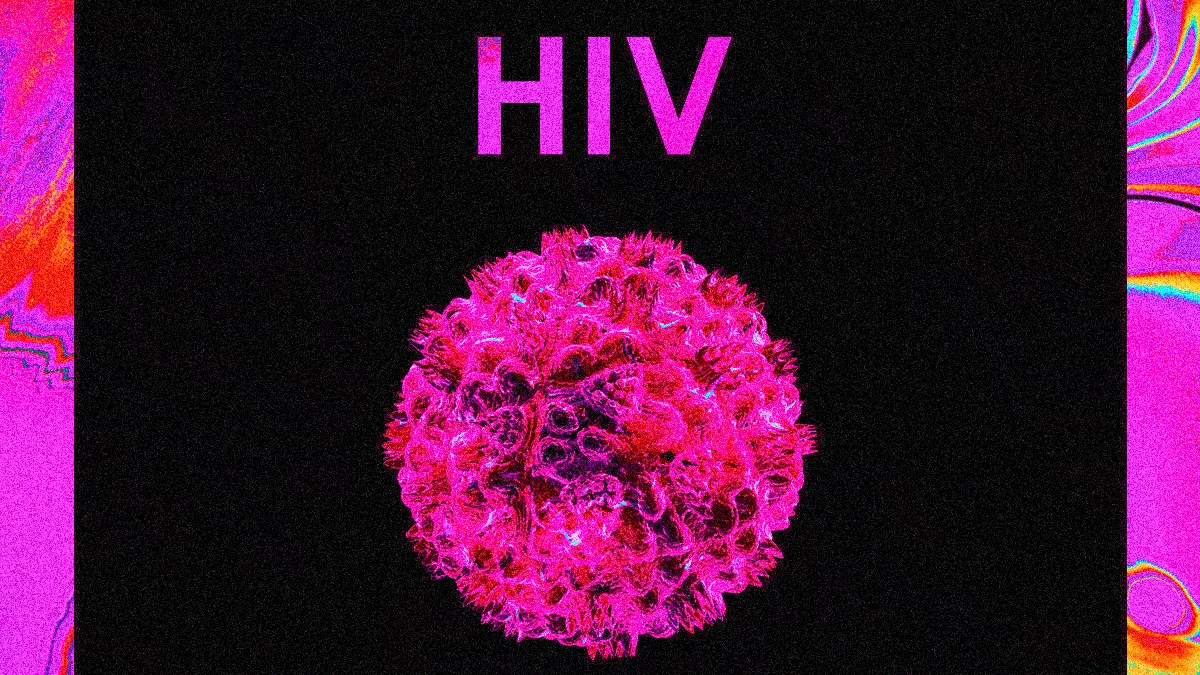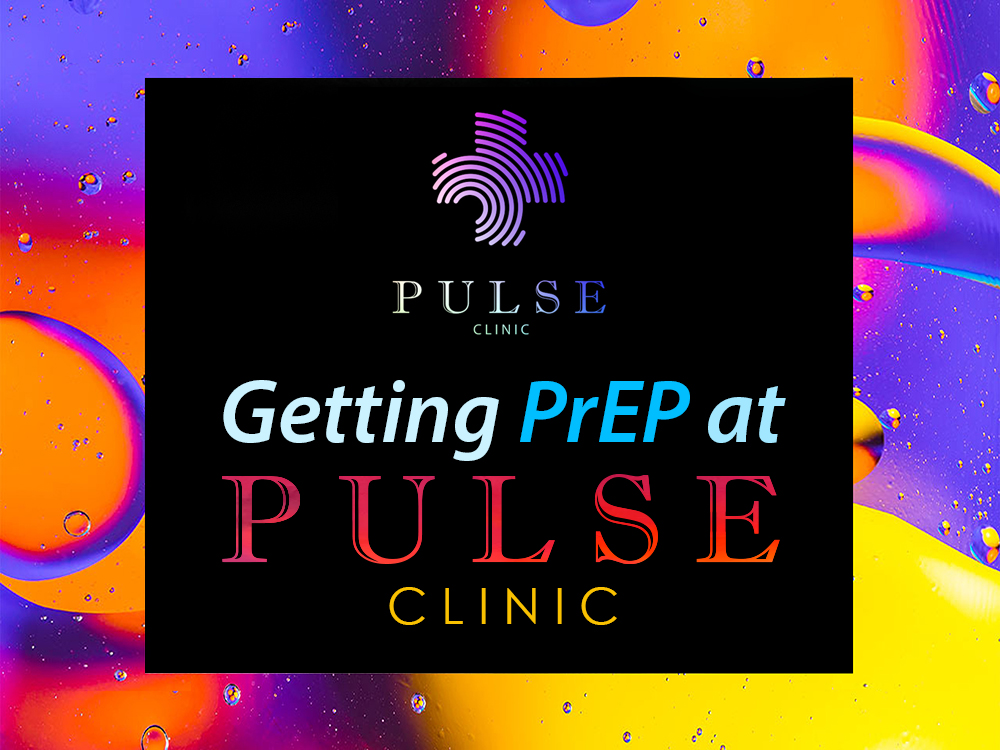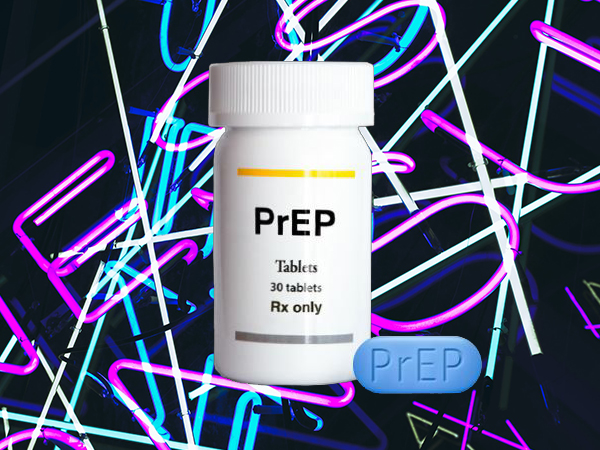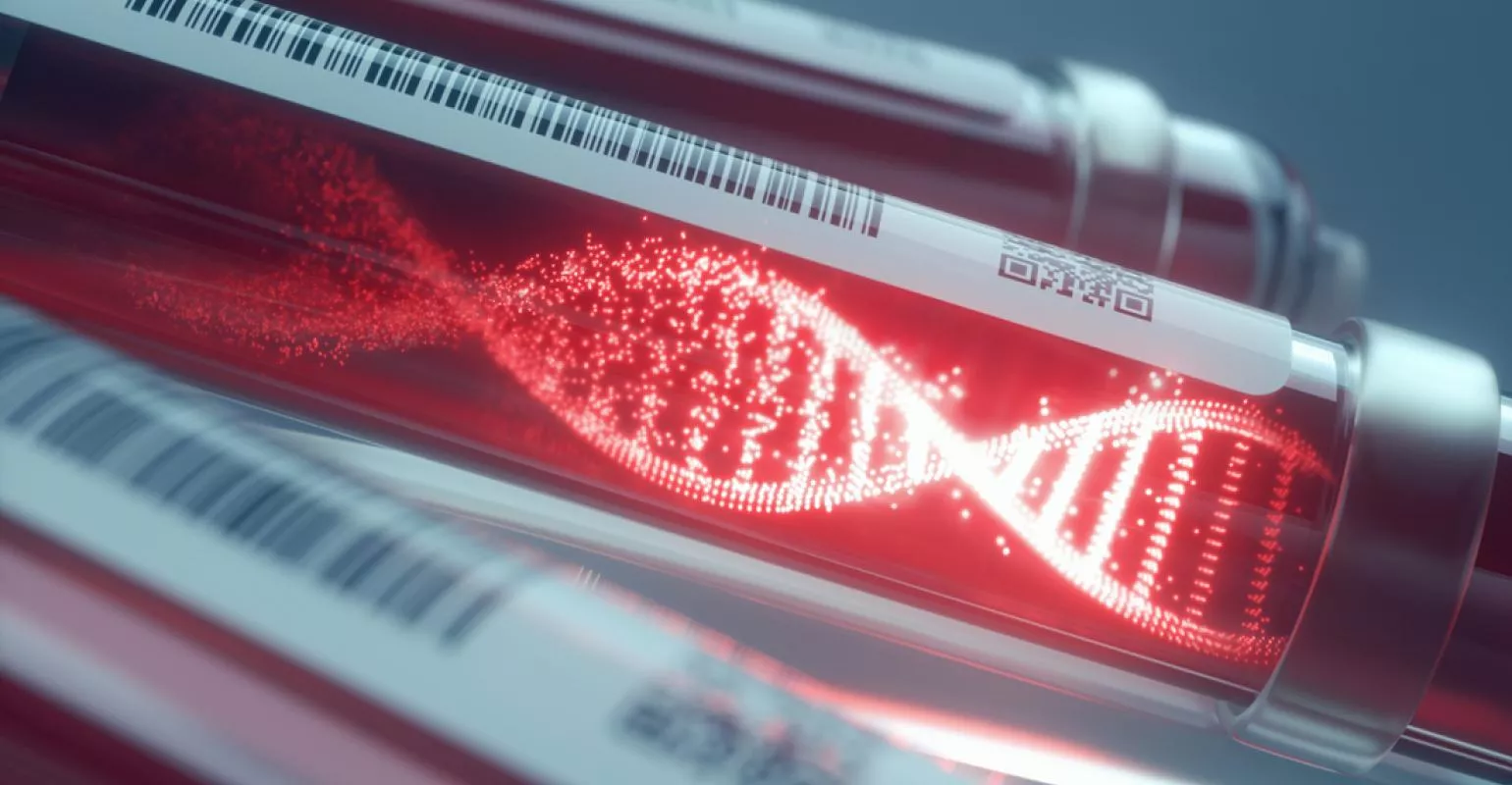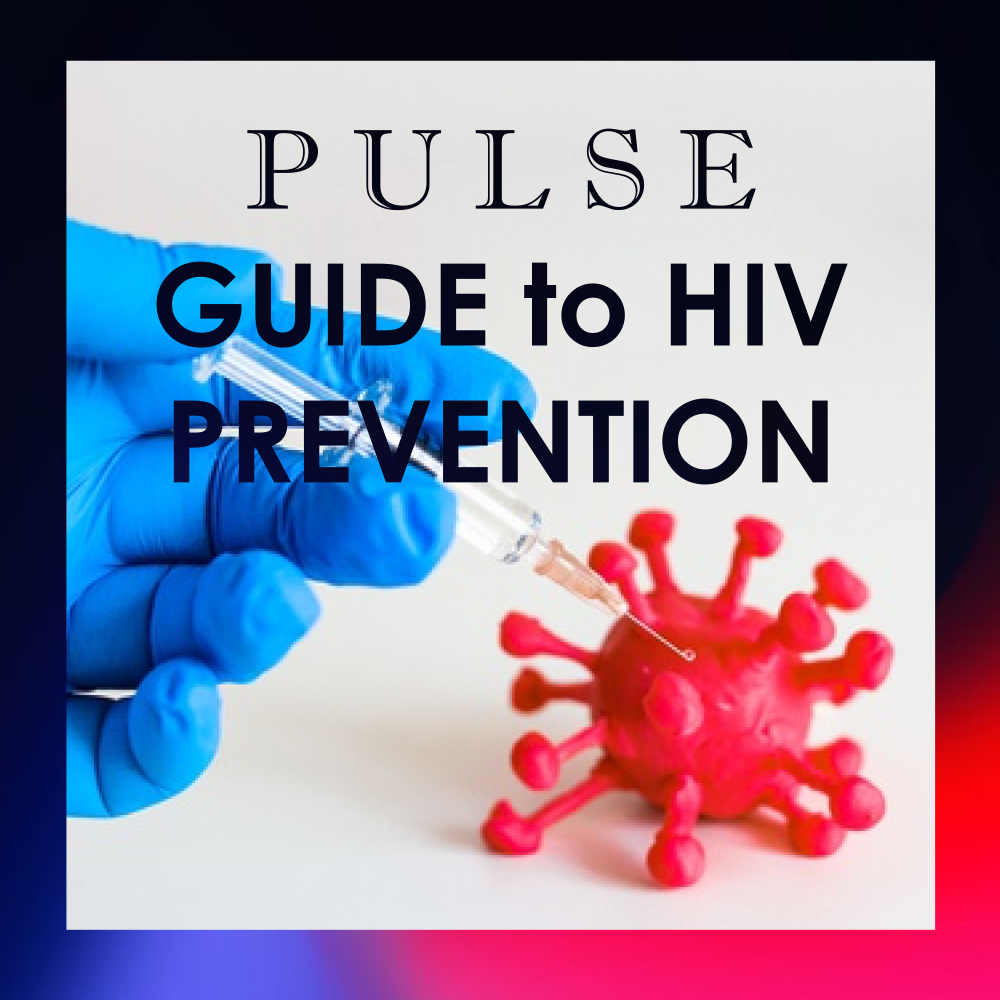PEP FAQ - Frequently Asked Questions about Emergency PEP
24437
Condom broke, no worries, PULSE CLINIC is here to offer emergency prevention for you 7 days a week.
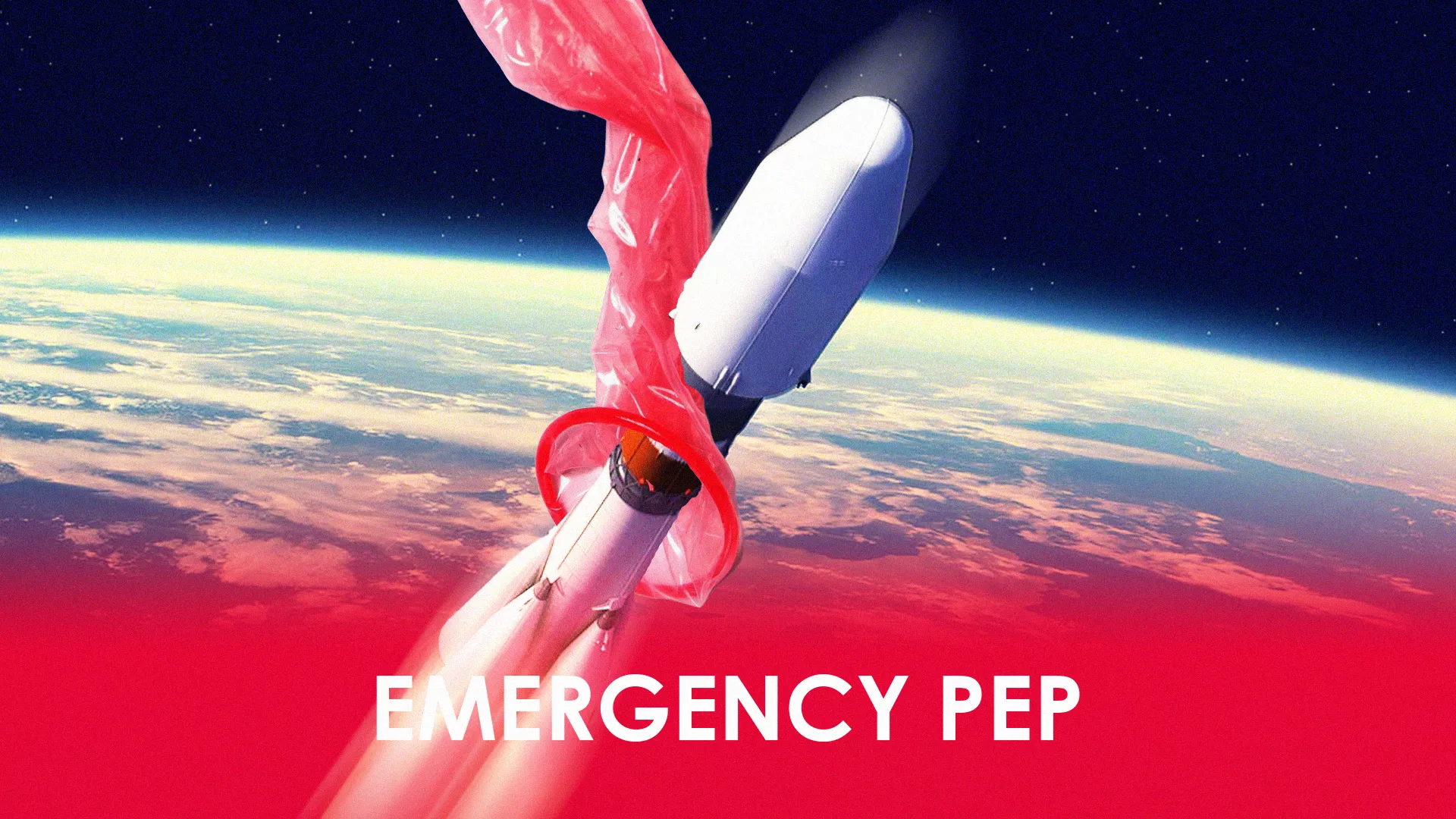
Written by Dr.Deyn Natthakhet Yaemim (Founding Director) on 6 June 2016, last updated 30 December 2024
PEP FAQ - Frequently Asked Questions about Emergency PEP
If you've had a high-risk exposure to HIV in the past 72 hours, PEP should be initiated within this time frame. It is most effective when started within 24 hours, so the sooner PEP is begun, the better the protection.
Factors that may increase the risk of HIV infection, making you a potential candidate for PEP
- The partner is known to be HIV positive AND is not on treatment.
- Anal sex with penetration without a condom
- Vaginal sex without a condom
- Condom break
- Presence of blood
- Presence of cuts or ulcers
- You are not circumcised
- You have been exposed to potentially HIV-infected body fluids
- Your exposure was less than 72 hours ago
- Partner of unknown HIV status who belongs to a higher-risk HIV group (e.g. MSM or from Africa or S.E.Asia)
- They penetrated you (Their penis, your arse) AND you don't know for sure whether they have HIV or not.
If you're unable to access PEP within 72 hours, but it's been 5-7 days since the exposure, it's still important to seek medical advice to explore your options. This may involve starting a 3-drug combination of antiretroviral medications as soon as possible, in case you have contracted HIV. Starting treatment early can help minimize potential damage to your immune system.
What is PEP?
PEP stands for Post-Exposure Prophylaxis. It is a treatment designed to prevent HIV infection in individuals who are HIV-negative and have been potentially exposed to the virus. By taking PEP, a person uses antiretroviral medication to prevent HIV from establishing itself in the body.
For more information about the medication and ordering process,
please email pulseliving@pulse-clinic.com or chat on your preferred platform.
![]() +66-84-226-2569
+66-84-226-2569  @pulserx
@pulserx ![]() PulseClinic
PulseClinic
How does PEP work?
It takes a few days for HIV to become established in the body following exposure. Once it is established you will have HIV for the rest of your life. However, if you begin taking PEP in time, the anti-HIV drugs will prevent the HIV (that's already in your body) from reproducing and it DIES out before it has a chance to multiply. PEP drugs given at this time may help the body’s immune system to stop the virus from replicating (multiplying) in the infected cells of the body. The cells originally infected would then die naturally within a short period without producing more copies of HIV.
How well does PEP work?
The golden period for PEP medication is 72 hours after a potential exposure to HIV, and it is proven to be highly effective if it is started within this period. PEP can make sure that you won’t be infected with HIV, regardless of the means that you caught it. However, you must take it daily for at least 28 days, and on top of the daily dosage, it must be at the same hour every day. This is because the PEP drug will show its full effectiveness if taken as mentioned.
Is PEP for me?
PEP is the right tool for you to use to prevent yourself from getting HIV if
- you’re HIV-negative or don’t know your HIV status
- you may have been exposed to HIV during sex (for example, if the condom broke) within the last 72 hours
- you shared needles with someone else within the last 72 hours
- you were sexually assaulted
But if the HIV virus is already in the body, isn't it too late?
Not if you act quickly. After HIV gets in the bloodstream it takes some time before it permanently establishes itself in the body. If a person who has been exposed to HIV acts quickly to get PEP (within 72 hours) they stand a good chance of stopping the virus from establishing itself in their body.
If I take PEP, I won't become HIV-positive?
Research shows that taking PEP significantly reduces the likelihood of HIV infection. However, it doesn't guarantee protection, and some people may still contract HIV despite taking it. PEP can fail for several reasons:
- The person does not take PEP as prescribed (daily for a month) or is unable to complete the treatment.
- Some HIV strains are resistant to certain antiretroviral drugs (though this is rare).
- The initial viral load (the amount of HIV in the body) is too high for the medication to be effective.
That said, the sooner PEP is started after exposure to the virus, the more likely it is to be successful.
What would be done when receiving emergency PEP at PULSE Clinic?
1. Consultation
2. Rapid screening for HIV, Hepatitis B virus with results in 15 minutes, accuracy of 99.9%
3. Kidney function tests
4. PEP Medications
5. Test or treatment for possible sexually transmitted infections
What HIV/PEP drugs do we use?
We use the latest, gold-standard PEP medications that have fewer side effects and offer better HIV prevention. These medications are taken for a 28-day course.
For adults, the preferred combination includes Tenofovir along with either Tenofovir Disoproxil Fumarate (TDF) or Emtricitabine (FTC), which are also the first-line drugs for HIV treatment.
Your doctor will choose the third drug based on current guidelines from the WHO and CDC, which recommend it as a preferred option for HIV treatment.
Some clients may not fully understand the concept of HIV drug resistance. In the rare event that you are exposed to a drug-resistant strain of HIV, standard PEP medications may not be effective. That’s why the CDC recommends using a higher class of medications for PEP, which are less likely to be affected by resistant strains of HIV. These medications are available at our clinics but come at a higher cost, significantly more than the standard PEP drugs used in lower-income countries. If your doctor prescribes these more expensive medications, it is because they’ve assessed that your risk is very high and are aiming to meet the high standards outlined in the CDC’s PEP treatment guidelines.
What else should be done?
At PULSE CLINICS, your doctor may recommend treatment to prevent potential infections like gonorrhea, chlamydia, or syphilis if you've had unprotected sex or experienced a sexual incident. They will also suggest screening for STIs such as Ureaplasma parvum, Ureaplasma urealyticum, Mycoplasma hominis, Mycoplasma genitalium, Trichomonas vaginalis, and LGV, as up to 70% of infections can be asymptomatic, meaning individuals may spread the infection without knowing. While it's commonly believed that STDs/STIs are only transmitted through sexual contact, this is no longer the case in 2021. Many STDs/STIs can also spread through direct skin-to-skin contact, such as touching.
You don't need PEP if:
- You are confident that your partner doesn't have HIV.
- The partner is HIV positive and on successful treatment (Known as ‘undetectable viral load')
- Human bites
- Another person's semen gets in your eye.
Book Your Appointment Today!
Contact us at info.bkk@pulse-clinic.com or chat on your preferred platform:
Trust PULSE CLINIC to take care of your health like other 45000 people from over 130 countries. We provide discreet professional service with high privacy. Here to help, not to judge.
What will the doctor ask me?
The doctor will assess the likelihood that you have been exposed to HIV before starting treatment. They will ask about the circumstances that led you to believe you were exposed, including the type of sexual or injecting activities involved and whether your partner is likely to be HIV-positive. You will be asked if you know whether the person has HIV, and if they do, whether their viral load is undetectable. If the potential exposure was sexual, the doctor may ask details such as the type of sex (e.g., anal, vaginal, or oral), whether you were the insertive or receptive partner, if ejaculation occurred inside, and if there are any other concerns you may have.
It's important to be honest and accurate when sharing this information – we are here to support you, not to judge you.
The information you provide will help us assess the severity of the situation. The risk of contracting HIV through oral sex is extremely low, so PEP is not typically recommended after potential exposure via oral sex. The only exception is if receptive oral sex occurred with a partner known to be HIV-positive, and the receptive partner had cuts or sores, such as ulcers, in their mouth.
At PULSE CLINICS (across all our branches throughout Asia), we've handled over 5,000 cases like this – you are neither the first nor the last. The doctor will not judge you; instead, they will be supportive and ensure you feel comfortable. If you believe you're at risk and need PEP, don't hesitate to call us.
What are the HIV PEP side effects?
Our new PEP medications have very few side effects, with fewer than 1 in 100 patients experiencing any issues.
Common side effects (less than 1%) may include nausea, diarrhea, and fatigue. Rash and fever are rarer side effects (less than 0.1%). So, while PEP can cause some mild side effects like nausea or dizziness, these typically resolve within a week and are not life-threatening.
How to take PEP correctly?
- PEP should be started within 72 hours of a potential HIV exposure, but the sooner you begin, the more effective it will be.
- If prescribed, you'll need to take PEP once or twice a day for 28 days.
- When taken correctly, PEP is effective in preventing HIV, but it is not 100% guaranteed.
How long do I need to take PEP?
Global PEP guidelines recommend a 28-day treatment course for optimal effectiveness. However, most PEP medication bottles contain 30 pills, which may lead some healthcare providers to sell the entire bottle rather than individual doses. Regardless, you only need 28 days of treatment to complete the regimen — not 30.
Small animal studies suggest that 28 days is the ideal duration, and a case-control study involving healthcare workers found that PEP was less effective when the full 28-day course was not completed. As a result, current guidelines strongly recommend using a full 4-week (28-day) course of PEP.
How can I remember to take my PEP?
Here are some tips to help you remember to take your PEP medication every day for the full month:
- Set a daily alarm or reminder on your phone to prompt you to take your meds.
- Take your medication at the same time each day, such as after breakfast or dinner.
- Place your PEP medication next to something you use regularly to serve as a reminder.
- Take your medication at the same time you brush your teeth, and keep it near your toothbrush so you see it.
- Put a discreet reminder, like a post-it note with the letter ‘P’, on your fridge or noticeboard to jog your memory.
- If you're going out for the night, bring enough of your PEP meds with you in case you don't make it home.
- Ask someone you trust to remind you to take your medication.
How can I pay for my PEP?
You can inquire about the cost of PEP at your local healthcare provider, as prices may vary by location. Be sure to ask about payment options as well, as some places may only accept cash, not cards.
At PULSE CLINICS, we accept payment via credit card, debit card, cash, and bank transfer.
Check with your insurance provider to see if PEP is covered. We can provide a medical certificate and receipt, which many of our patients use for reimbursement through their insurance.
Can I drink alcohol with PEP?
You may drink moderate amounts of alcohol (within normal recommended safe limits) while taking this medication.
Taking other drugs while you are on PEP
PEP can interact with other medications, including prescription drugs, supplements, and vitamins, potentially affecting how the PEP drugs work. Using recreational drugs while on PEP can be risky, as some substances can cause severe side effects when combined with certain PEP medications. Be sure to discuss any other prescription or recreational drugs you are currently taking or plan to take with the doctor or nurse prescribing your PEP. If you intend to use recreational drugs during your PEP treatment, it's important to talk to your prescribing doctor first. Additionally, if you take multivitamins, calcium supplements, or medications for indigestion, please inform your doctor or nurse, as they may impact the absorption of Raltegravir.
Can I stop taking my PEP after starting it and not finish the course of 28 days?
Once you begin PEP, it is important not to stop, even if your HIV PCR test comes back negative. Discontinuing the treatment before completing the full 28-day course is very risky, as it can lead to PEP failure, which increases the likelihood of contracting HIV.
Why does PEP fail?
There are possibilities that PEP can fail to prevent HIV infection. This is due to four possible reasons,
- The 72-hour window for starting PEP is not a guaranteed safeguard, as there may be risks before this period that the patient was unaware of or did not disclose to the doctor.
- Some individuals purchase PEP online without first confirming they are HIV-negative, which can be problematic. If they unknowingly have HIV and start PEP, it may not help, and in some cases, it could make things worse. Taking PEP while already HIV-positive could act as a treatment, but discontinuing it prematurely may lead to the development of drug-resistant HIV strains, which could then be transmitted to others—a dangerous scenario.
- There are also situations where the patient's exposure to HIV involves someone with a very high viral load, such as an individual with acute HIV infection. In these cases, the HIV load may be so high that PEP is ineffective, even if started within 72 hours.
- Additionally, stopping PEP treatment before the full 28-day course is completed can compromise its effectiveness. Some people take PEP for just a week or two and stop after receiving a negative HIV test result, mistakenly thinking they are protected. However, skipping doses or stopping early increases the risk of PEP failure. Ongoing risk or further exposure to HIV during the course of PEP also increases the chances of failure.
- Lastly, while rare, some strains of HIV may be resistant to certain anti-HIV drugs. This is why it is crucial to take the most up-to-date PEP medications, which have multiple mechanisms to help prevent HIV from establishing itself in the body after exposure.
I have completed my 28-day course of PEP, what do I do next?
After completing your PEP course, it's important to visit your provider or return to us for an HIV test. The doctor will assess your risk and may recommend starting PrEP. You should also get tested for HIV again at 1 month and 3 months after finishing PEP to confirm your HIV status, as PEP can sometimes delay the onset of HIV infection.
Can I take PEP every time I have bareback sex?
Well, practically yeah sure you can take PEP every time you have unprotected sex but it is not recommended because preventing the infection after the risks have happened is not better than preventing it BEFORE the risk will happen. There's a thing called PrEP which refers to Pre-Exposure Prophylaxis which means you take PrEP and you are protected even before you have sex. If you can anticipate any unprotected sex in the future you better take PrEP in advance to protect yourself as it is cheaper than a course of PEP (and less terrifying), and PrEP can prevent you from HIV infection up to 99% if you take it daily. Want to know more about PrEP? Read here
Where Can I Get PEP?
For more information about the medication and ordering process,
please email pulseliving@pulse-clinic.com or chat on your preferred platform.
![]() +66-84-226-2569
+66-84-226-2569  @pulserx
@pulserx ![]() PulseClinic
PulseClinic
Estimated HIV transmission risk per exposure for specific activities and events
| Activity | Risk-per-exposure |
|---|---|
| Vaginal sex, female-to-male, studies in high-income countries | 0.04% (1:2380) |
| Vaginal sex, male-to-female, studies in high-income countries | 0.08% (1:1234) |
| Vaginal sex, female-to-male, studies in low-income countries | 0.38% (1:263) |
| Vaginal sex, male-to-female, studies in low-income countries | 0.30% (1:333) |
| Vaginal sex, source partner is asymptomatic | 0.07% (1:1428) |
| Vaginal sex, source partner has late-stage disease | 0.55% (1:180) |
| Receptive anal sex amongst gay men, partner unknown status | 0.27% (1:370) |
| Receptive anal sex amongst gay men, partner HIV positive | 0.82% (1:123) |
| Receptive anal sex with condom, gay men, partner unknown status | 0.18% (1:555) |
| Insertive anal sex, gay men, partner unknown status | 0.06% (1:1666) |
| Insertive anal sex with condom, gay men, partner unknown status | 0.04% (1:2500) |
| Receptive fellatio | Estimates range from 0.00% to 0.04% (1:2500) |
| Mother-to-child, mother takes at least two weeks antiretroviral therapy | 0.8% (1:125) |
| Mother-to-child, mother takes combination therapy, viral load below 50 | 0.1% (1:1000) |
| Injecting drug use | Estimates range from 0.63% (1:158) to 2.4% (1:41) |
| Needlestick injury, no other risk factors | 0.13% (1:769) |
| Blood transfusion with contaminated blood | 92.5% (9:10) |
Book Your Appointment Today!
Contact us at info.bkk@pulse-clinic.com or chat on your preferred platform:
Trust PULSE CLINIC to take care of your health like other 45000 people from over 130 countries. We provide discreet professional service with high privacy. Here to help, not to judge.
Loading...
Clinic Locations
Loading...


